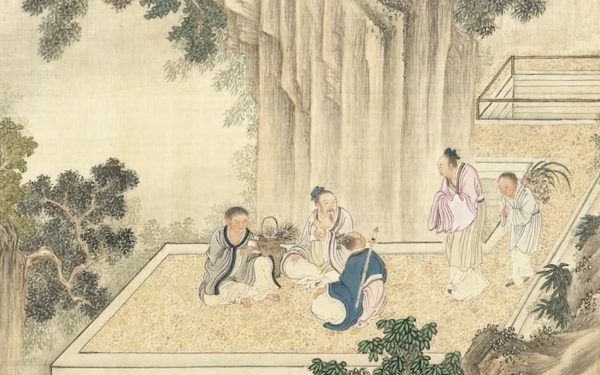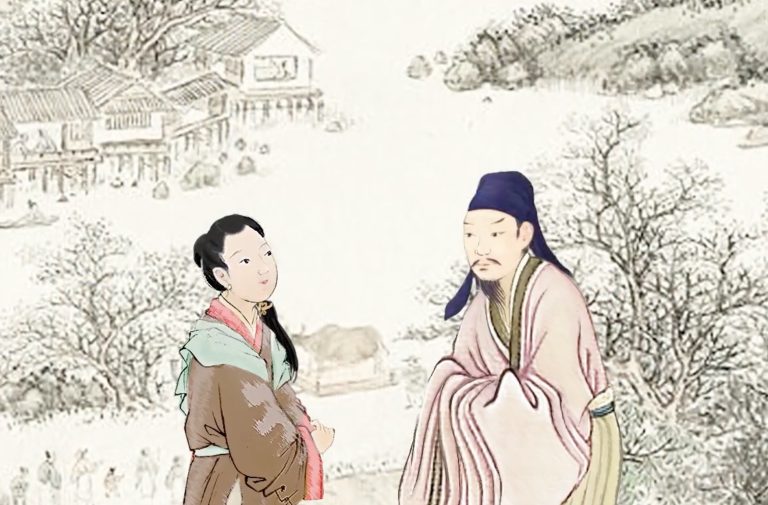This year, Aug. 22 is the seventh day of the seventh lunar month in the traditional Chinese calendar. The date marks the occasion of Qixi (七夕), often called the Chinese version of Valentine’s Day.
As the story goes, a celestial being, the Weaver Girl, fell in love with a mortal man, the Oxherd, and started a life with him in the human realm, but was called back to the heavens by divine command. Moved by their devotion to each other, the gods allowed them one reunion a year — the summer’s-end night of Qixi — and the day became a festival for lovers ever since.
Like other cultures, the Chinese saw love and romance as a matter of fate and even heavenly arrangement. As traditional belief has it, every couple is connected by an invisible red string, fastened by the venerable Old Man Under the Moon (月老).
- The Story Behind Qixi, the Chinese Version of Valentine’s Day
- Understanding the Traditional Chinese Calendar in the Year of the Rabbit
Accordingly, the ancients took affection and marriage as a matter of moral obligation. Those who could uphold their duties despite the circumstances or temptations were remembered for their virtue.
One such man was Liu Tingshi (劉庭式), a scholar-official in medieval China whose devotion to his wife gives a new meaning to the phrase “love is blind.”
‘How can I change my heart?’
Success
You are now signed up for our newsletter
Success
Check your email to complete sign up
Liu lived in the Song Dynasty during the 11th century, and was acquainted with the renowned poet Su Shi (蘇軾), who in 1074 documented his story.
When he was young and studying for the civil service exams, Liu was engaged to a peasants’ daughter in his hometown. The two got along well, and when Liu completed his studies, he left home to take the exams.
Liu passed the provincial-level tests with the highest grade, but misfortune befell his fiancee while he was away, as she became seriously ill and lost her eyesight.
Ashamed about their daughter’s disability and their family’s low social status, her parents suggested that Liu break off the engagement. They pointed to the fact that Liu had not given any betrothal gifts, meaning the union was not yet official and could still be annulled without any harm done.
Others who knew the couple felt it would be natural for Liu to abandon the poor woman, considering that his exam results meant he would serve as an imperial official.
Some even suggested that if Liu did not want to break off relations with the family, he could marry their healthy younger daughter instead.
Liu did not let these suggestions sway him. “I gave her my heart when we were engaged. How can I change my heart just because she became blind!?”
The two were thus married despite her condition, and led a happy life together. Liu’s wife also bore him several healthy children. When she died, Liu was heartbroken and never remarried.
‘All I know is that she was my wife’
Su Shi, the great poet, was impressed with Liu Tingshi’s dedication and affection for his wife even though, to him, it seemed as if Liu had married her out of a sense of moral duty rather than emotion.
“You married a blind wife to fulfill your promise and loyalty, but why are you feeling sad when she passed away?” he asked.
Mr. Liu answered, “All I know is that she was my wife, whether she can or cannot see, she will always be my wife.”
- Su Shi, the Ancient Poet Who Put the People First
- Benefits of Sitting and Meditation in the Lotus Position

He added, “If I loved her only because of her looks, then as she grew older, my love would have faded too. Then I wouldn’t have felt sad when she passed away. If that’s the case, then all the prostitutes on the street, who wink at men passing by, could all be picked up as wives.”
Su Shi, sensing his friend’s virtue, made a prediction that Liu Tingshi would be either blessed with great wealth, or reach spiritual enlightenment.
His colleagues at the time didn’t take Su Shi’s words seriously, thinking he was being idealistic in his praise for Liu.
Fate took Liu and Su Shi to different regions of the empire, and they lost contact with each other.
But eight years later, the poet met someone who brought news from a Daoist monastery on Mount Lu in south-central China.
Liu Tingshi, it was said, had joined the cultivators there and achieved a high level in mystical practice. He had fasted for years, having no longer any need for food or drink. His figure produced a purple aura of divine energy, and he moved effortlessly about the mountain like an immortal.
For more stories and insights from ancient China, check out the video channel, Five Thousand Years, by Ally Wang.













